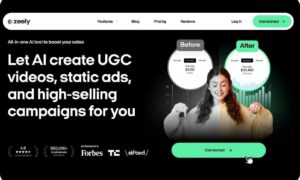The arrival of SearchGPT, an AI-driven tool that could reshape search and digital advertising, poses a critical question: will it disrupt Google’s long-standing dominance, or will it further entrench the tech giant’s control? To answer this, we must examine the nature of Google’s monopoly, the potential impact of SearchGPT, and the antitrust concerns at stake.
Google’s Monopoly: Search and Ads in a Closed Loop
Google controls more than 90% of the global search market. Its influence extends beyond search results and into the digital advertising ecosystem. The secret to Google’s dominance lies in its vertically integrated structure. It not only provides search services but also controls the delivery mechanisms for ads. This closed-loop system allows Google to gather user data, optimise search results, and offer precise ad targeting, making it difficult for competitors to gain ground.
By funnelling user data from search into Google Ads, the company offers targeted, data-driven advertising at scale. This results in a near-monopolistic position, attracting advertisers because of its reach and precision. Regulatory bodies, particularly in the US and EU, have flagged this behaviour as anti-competitive, with lawmakers accusing Google of limiting competition and stifling innovation.
SearchGPT’s Arrival: Game Changer or Monopoly Booster?
SearchGPT’s introduction could shake up the industry or cement Google’s hold on search and digital advertising. The outcome depends on how SearchGPT integrates into the market.
Scenario 1: SearchGPT Reinforces Google’s Power
If SearchGPT becomes part of Google’s existing ecosystem, it could strengthen Google’s grip on both search and ads. The AI tool could enhance Google’s algorithms, leading to even more accurate search results. This precision would enable Google to deliver highly targeted ads, increasing its value to advertisers and reinforcing its dominance.
In this scenario, SearchGPT could widen the gap between Google and its competitors, making it harder for smaller search engines and independent ad networks to thrive. With superior data resources, Google could maintain its lead, leveraging AI to amplify its control over both user data and ad targeting.
Scenario 2: SearchGPT Offers Genuine Competition
Alternatively, SearchGPT could create a competitive challenge. If developed outside Google’s sphere, it might serve as a viable alternative for advertisers and users alike. It could reduce the industry’s dependence on Google’s infrastructure by offering a new search model that values privacy and transparency.
For this to succeed, however, SearchGPT must avoid the pitfalls of Google’s approach. It would need to offer robust targeting and data protection without relying on excessive data collection. Even then, the challenge remains: if SearchGPT depends on Google’s ad infrastructure, its potential to disrupt Google’s monopoly might fall short.
Antitrust Concerns: New Threats or Old Problems?
From an antitrust standpoint, SearchGPT could either exacerbate existing issues or open new possibilities. The key question remains: will it challenge Google’s dominance, or will it blend into the same monopoly?
One major concern revolves around Google’s control over both search and ad systems. By dominating both spaces, Google holds an overwhelming advantage over competitors. If SearchGPT integrates with Google, it could further empower the tech giant. AI tools like SearchGPT, which excel at processing data and delivering personalised results, could boost Google’s ability to target ads and maintain control.
This complexity brings new challenges for regulators. How can they ensure AI tools like SearchGPT operate fairly in the marketplace? With AI decision-making often opaque, it becomes difficult to trace the logic behind ad placements, making it harder to monitor anti-competitive practices.
Regulating AI in Search and Ads: What’s Next?
Regulators face a daunting task as AI integrates deeper into search and advertising. While AI promises better search results and more efficient ad targeting, it could also worsen an already monopolistic landscape. For SearchGPT to challenge Google’s dominance, the industry will need regulatory changes.
- Promoting Independent Competition: Regulators must encourage independent players to foster real competition. SearchGPT’s success relies on its ability to stay independent of Google and offer an alternative that advertisers and users trust.
- Ensuring AI Transparency: AI systems often function as “black boxes,” making it difficult to understand their decision-making processes. Regulators must require transparency, ensuring that tools like SearchGPT remain accountable for how they rank search results and serve ads.
- Breaking Data Monopolies: Google’s power stems from its control over vast data reserves. Regulators may need to break these data monopolies, ensuring competitors have fair access to user data without compromising privacy.
- Accountability for AI: AI must not be exempt from scrutiny. Standards that demand accountability for AI-based decisions will be critical to maintaining a level playing field in search and digital ads.
Conclusion: Can SearchGPT Disrupt or Reinforce?
SearchGPT has the potential to change the search and advertising market, but its true impact will depend on how it is used and regulated. If it becomes another tool in Google’s empire, it could further entrench the company’s dominance. If it remains independent, it may finally offer a genuine alternative in an industry long dominated by one player.
The future of search and advertising may hinge on the ability of regulators to balance innovation with competition. SearchGPT could be a catalyst for change, but only if the right measures are in place to ensure it does not deepen the issues already present.
Follow Scott Dylan on X for more AI insights



































